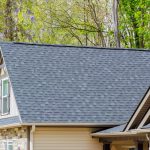Let us be fair: vinyl siding frequently gets a bad reputation. You may have already heard a couple of negative things about this flexible cladding material, but have you considered what are the facts and what is fiction? There will be advantages and disadvantages to any material, and vinyl siding is not an exception. Let us cut through the fluff and get to the facts concerning this reasonably priced choice.
Vinyl siding: The facts, please!
Vinyl siding is a better choice for most homeowners for a number of factors. Listed below are the most common problems you may have heard of, and the actual story behind all that spin:
Myth: Vinyl siding generates dioxin, and that is bad for your wellbeing.
Truth: Dioxin is a poisonous gas generated when certain items are burnt. The industrial process employed to make plastic siding does produce dioxin. But here is the fact: The quantity of dioxin placed to the air each year by plastic siding is significantly less than half of a single percent of their entire dioxin released to the air. That is a really small volume! The massive majority of dioxin is often coming from natural places such as forest fires, active volcanoes, and even simply burning wood in fireplaces.
Myth: Dioxin or not, synthetic substances are bad for the Earth!
Truth: Any substance will have some influence on the environment surrounding it. The issue is how it will fare better over time. Vinyl siding lasts for a great amount of time, involves minimum upkeep and requires no harsh cleaners to help keep it looking great. Since it may endure for decades, it prevents the usage of contaminants, like the paint your timber siding may require every couple of years. Materials that continue for a long time would be those which will continue to keep the surroundings in a rather excellent form.
Myth: Old vinyl siding clogs up landfills as it does not get recycled.
Truth: This is only one of the most frequent falsehoods concerning vinyl siding, and it is certainly untrue. Over a billion pounds of plastic siding is melted and recycled every year. Old vinyl siding could be flipped out into new vinyl goods that normally end up in a different home, like fencing, pipes, garden mats, and vinyl window solutions. If you are worried about where your previous vinyl siding may go when you are done with it, then ensure your contractor understands that you would like it to be recycled.
Myth: Vinyl siding may turn a home fire to some deadly inferno.
Truth: Any fire will burn hot, and it is particularly true in any home fire, in which there are many things that may fuel the fire. But vinyl siding does not contribute to intensifying the flame—if anything else, it might help slow the fire since it is extremely resistant to it. Much of the idea of this myth is around the issue of HCL, or hydrogen chloride, which is discharged when vinyl burns off. Although HCL is a poisonous gas which may hurt you in the event that you inhale it, the concentration of HCL is quite minimal compared to the concentration of carbon dioxide present during a fire. CO2 is made by virtually anything that burns, and it may kill you way before you even smell smoke.
The truth has been revealed.
Vinyl siding is just one of the most flexible, maintenance-free outdoor cladding products available on the market nowadays. So, now that the myths are cleared up, perhaps you can put vinyl siding on your own “to-do” list for your next outdoor remodeling or new building project.





